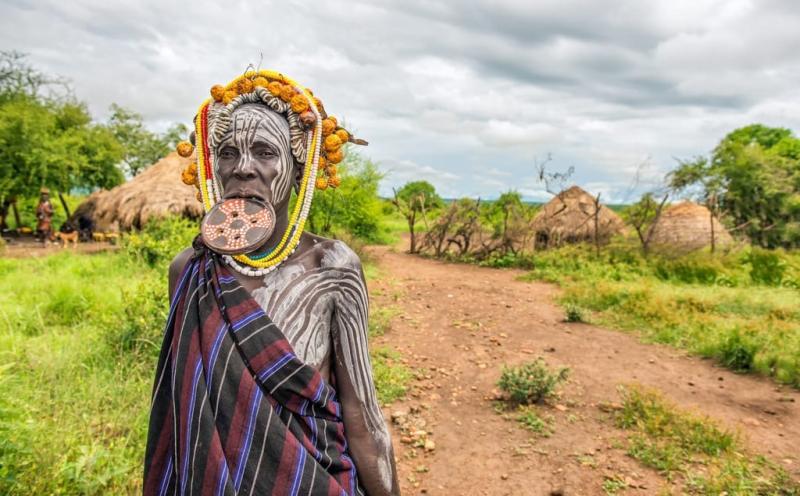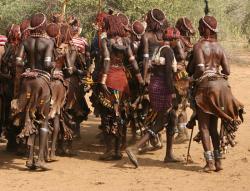What is Ethiopia famous for?
Ethiopia, a country located in the Horn of Africa, is famous for its rich cultural heritage, diverse landscapes, historical significance, and unique contributions to the world. Here are some aspects for which Ethiopia is particularly renowned:
Ancient History and Civilization:
- Ethiopia is one of the oldest nations in the world with a history dating back thousands of years. It is home to the ancient Kingdom of Aksum, known for its obelisks and the legendary Queen of Sheba.
Axum Obelisks:
- The ancient city of Axum is famous for its obelisks, towering stone pillars that were erected as funerary monuments and symbols of imperial power. The obelisks are UNESCO World Heritage Sites.
Rock-Hewn Churches of Lalibela:
- Lalibela, a town in northern Ethiopia, is known for its remarkable rock-hewn churches. These churches, carved out of solid rock in the 12th century, are a UNESCO World Heritage Site.
Lucy (Australopithecus afarensis):
- The discovery of the fossilized remains of a hominid known as "Lucy" in the Afar region of Ethiopia in 1974 provided significant insights into human evolution. Lucy is one of the most famous hominid fossils ever found.
Unique Alphabet (Ge'ez Script):
- Ethiopia uses its own ancient script known as Ge'ez for its written language, which is distinct from the scripts used by neighboring countries.
Coffee Origin:
- Ethiopia is often referred to as the birthplace of coffee. Legend has it that coffee was discovered by an Ethiopian goat herder named Kaldi in the 9th century.
Cultural Diversity:
- Ethiopia is known for its cultural diversity, with numerous ethnic groups, each contributing to the rich tapestry of traditions, languages, music, and dance.
Religious Heritage:
- Ethiopia has a long tradition of Christianity, dating back to the 4th century. The rock-hewn churches, monasteries, and religious festivals are significant aspects of Ethiopian culture.
Simien Mountains National Park:
- The Simien Mountains, a UNESCO World Heritage Site, are known for their stunning landscapes, deep valleys, and unique wildlife, including the Ethiopian wolf and Gelada baboon.
Blue Nile and Lake Tana:
- Ethiopia is the source of the Blue Nile, one of the two main tributaries of the Nile River. Lake Tana, the largest lake in Ethiopia, is the source of the Blue Nile.
Diverse Cuisine:
- Ethiopian cuisine is renowned for its unique flavors and the traditional communal style of eating with injera (a sourdough flatbread) and a variety of stews known as wats.
These are just a few highlights of Ethiopia's cultural and historical significance. The country's unique contributions to human history, its natural beauty, and its cultural diversity make it a fascinating and celebrated part of Africa.
Ethiopia's allure: Exploring what makes the country famous
Ethiopia is a captivating country with a rich history and culture that dates back centuries. It is the birthplace of coffee, the cradle of humanity, and home to some of the most breathtaking landscapes on Earth.
Here are some of the things that make Ethiopia famous:
Ancient history: Ethiopia is one of the oldest countries in the world, with a history that dates back over 3,000 years. It is home to the ruins of Aksum, a once-powerful kingdom that was a major center of trade and commerce in the ancient world.
Diverse culture: Ethiopia is a melting pot of cultures, with over 80 ethnic groups and over 200 languages spoken. This diversity is reflected in the country's music, food, art, and architecture.
Natural beauty: Ethiopia is home to a variety of stunning natural landscapes, including the Simien Mountains, the Danakil Depression, and the Omo River Valley. These landscapes offer opportunities for hiking, camping, birdwatching, and other outdoor activities.
Coffee: Ethiopia is the birthplace of coffee, and the country's coffee culture is world-renowned. Ethiopian coffee is known for its complex flavor and aroma, and it is enjoyed by coffee lovers all over the world.
Food: Ethiopian food is known for its unique flavors and spices. Some of the most popular dishes include injera (a spongy flatbread), wat (a thick stew), and tibs (stir-fried meat or vegetables).
Rich cultural tapestry: Ethiopia's contributions to global heritage
Ethiopia has made significant contributions to global heritage in a variety of areas, including culture, religion, and science.
Cultural contributions: Ethiopia is home to a number of UNESCO World Heritage Sites, including the Lalibela Rock-Hewn Churches and the Aksumite Obelisks. The country is also known for its traditional music and dance, which are performed at festivals and celebrations throughout the year.
Religious contributions: Ethiopia is one of the oldest Christian countries in the world, and it is home to a number of important Christian pilgrimage sites. The country is also home to a significant Muslim population, and there are a number of important mosques and Islamic shrines in Ethiopia.
Scientific contributions: Ethiopia has a long history of scientific innovation. For example, the Ethiopians were one of the first civilizations to develop a calendar system. They also made significant contributions to astronomy and mathematics.
Natural wonders: Landscapes and landmarks that define Ethiopia
Ethiopia is home to a variety of stunning natural landscapes and landmarks, including:
The Simien Mountains: The Simien Mountains are a UNESCO World Heritage Site and are home to some of the highest peaks in Ethiopia. The mountains are also home to a variety of wildlife, including the endangered Ethiopian wolf.
The Danakil Depression: The Danakil Depression is one of the hottest and driest places on Earth. It is also home to a number of active volcanoes and geysers.
The Omo River Valley: The Omo River Valley is home to a number of different ethnic groups, each with its own unique culture and traditions. The valley is also home to a number of archaeological sites, including the remains of early hominids.
The Blue Nile Falls: The Blue Nile Falls is one of the largest waterfalls in Africa. The falls are located on the Blue Nile River, which is one of the two main tributaries of the Nile River.
Ethiopia on the world stage: Achievements and milestones
Ethiopia has a long history of independence and has never been colonized by a European power. The country has also made a number of significant contributions to the world stage, including:
The founding of the African Union: Ethiopia was one of the founding members of the African Union, which was established in 2002. The African Union is a continental organization that aims to promote peace, security, and development in Africa.
The Ethiopian Renaissance Dam: The Ethiopian Renaissance Dam is a hydroelectric dam under construction on the Blue Nile River. The dam is expected to be the largest hydroelectric power plant in Africa and will provide a significant source of electricity for Ethiopia and the region.
The Ethiopian Space Program: Ethiopia is one of the few African countries with a space program. The program is still in its early stages, but it has already launched a number of satellites into orbit.
Ethiopia is a fascinating country with a rich and diverse history and culture. It is a country that is making significant contributions to the world on a number of fronts.









